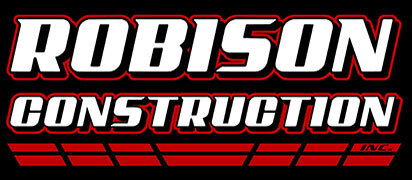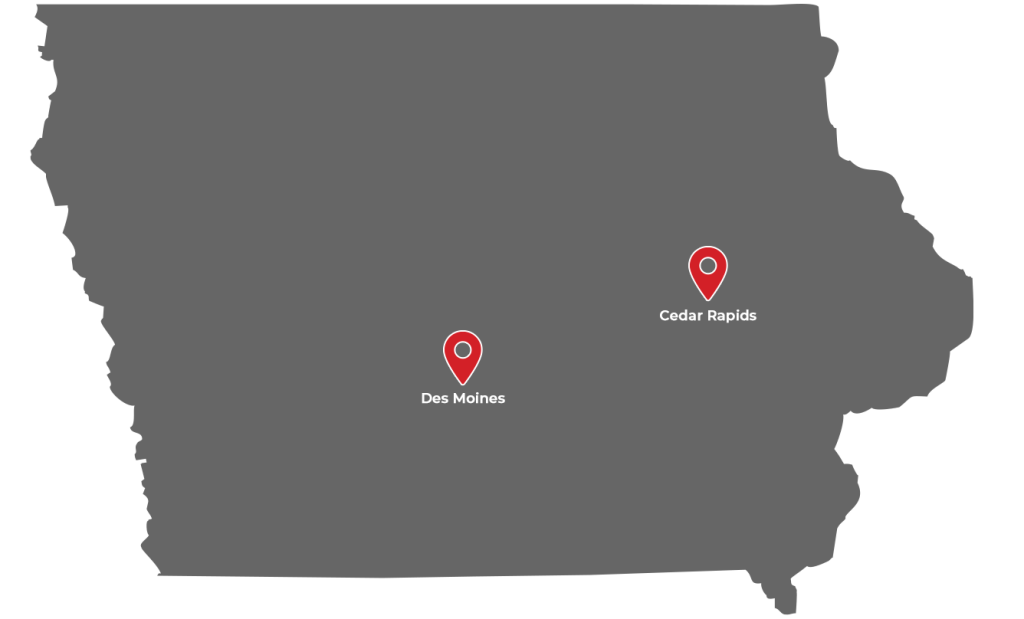In today’s construction world, energy efficiency is a key consideration for both residential and commercial building projects. For pre-engineered buildings, which are designed for rapid construction and cost savings, energy efficiency is often achieved through the use of advanced materials. Expanded Polystyrene (EPS) panels have emerged as one of the most effective solutions for enhancing energy efficiency in pre-engineered buildings. Offering superior insulation, durability, and sustainability, EPS panels make a significant impact on the overall performance of these structures. Robison Construction, an EPS Authorized Dealer, provides high-quality EPS solutions that improve energy efficiency for pre-engineered buildings in Iowa and beyond.
What Are EPS Panels?
Expanded Polystyrene (EPS) panels are a type of rigid insulation used in Structural Insulated Panels (SIPs) and other forms of building systems. EPS panels consist of lightweight polystyrene foam sandwiched between two facing boards, such as oriented strand board (OSB), metal, or cement. These panels are designed for both insulation and structural strength, making them ideal for pre-engineered buildings, where both efficiency and resilience are paramount.
EPS panels are recognized for their high R-values (a measure of thermal resistance), moisture resistance, and ability to provide consistent insulation. These qualities contribute to a building’s energy performance, reducing heating and cooling requirements and creating a comfortable indoor environment.
How EPS Panels Improve Energy Efficiency in Pre-Engineered Buildings
EPS panels are integral to the energy performance of pre-engineered buildings, offering numerous benefits that make them the material of choice for many energy-efficient construction projects.
1. Superior Thermal Insulation
The high R-value of EPS panels means they offer superior thermal insulation, which minimizes heat transfer between the interior and exterior of a building. In both hot and cold climates, this results in lower energy costs for heating and cooling, reducing the building’s reliance on HVAC systems.
Key Benefits of EPS Thermal Insulation:
- Reduced Heating and Cooling Costs: By maintaining a consistent indoor temperature, EPS panels reduce the need for excessive heating or cooling, which directly impacts energy bills.
- Comfortable Indoor Environment: Buildings made with EPS panels retain a comfortable temperature, even during extreme weather, improving occupant comfort.
- Less Strain on HVAC Systems: Efficient insulation reduces the load on heating and cooling systems, leading to less wear and tear and extending the lifespan of HVAC equipment.
EPS panels provide thermal efficiency that significantly enhances the performance of pre-engineered buildings, contributing to lower operational costs and a smaller carbon footprint.
2. Air Tightness and Reduced Heat Loss
Air leakage is one of the main contributors to energy loss in buildings. EPS panels are installed with a tight seal that reduces gaps and seams, minimizing air leaks that can compromise insulation. By creating a continuous thermal envelope around the building, EPS panels prevent cold drafts in winter and heat infiltration in summer.
Advantages of Air Tightness:
- Improved Energy Efficiency: An airtight building envelope prevents conditioned air from escaping, which helps maintain indoor temperatures and lowers energy consumption.
- Enhanced Indoor Air Quality: Reducing air leakage also prevents dust, pollen, and pollutants from entering the building, which benefits indoor air quality.
- Lower Maintenance Costs: A sealed building requires less frequent maintenance related to insulation, moisture issues, and temperature control, leading to cost savings over time.
For pre-engineered buildings where rapid construction and long-term efficiency are priorities, the air-tightness of EPS panels is a significant advantage that boosts energy performance.
3. Moisture Resistance and Mold Prevention
Moisture infiltration is a common challenge in building construction, particularly in areas with high humidity or seasonal rainfall. EPS panels have closed-cell structures that resist moisture absorption, reducing the risk of mold and mildew development within walls and roofs. In climates with high humidity or frequent precipitation, this moisture resistance is crucial for protecting both the building’s structure and its indoor air quality.
Benefits of EPS Moisture Resistance:
- Longer Structural Life: Moisture-resistant EPS panels prevent water from compromising the building materials, leading to longer-lasting structures.
- Healthier Indoor Environment: By reducing mold growth, EPS panels contribute to a healthier indoor environment and improve air quality for occupants.
- Consistent Insulation: EPS panels retain their insulative properties even when exposed to moisture, maintaining energy efficiency in various weather conditions.
With EPS panels, pre-engineered buildings can maintain high energy efficiency and protect against moisture-related issues that could impact both structural integrity and indoor health.
4. Environmental Sustainability
EPS panels not only contribute to energy efficiency but are also environmentally friendly. EPS is fully recyclable and requires less energy to manufacture compared to other building materials, making it a sustainable choice for green construction projects. EPS panels provide long-term energy savings that further reduce the environmental impact of pre-engineered buildings.
Environmental Benefits of EPS Panels:
- Reduced Carbon Footprint: Lower energy usage for heating and cooling reduces greenhouse gas emissions, contributing to a smaller carbon footprint.
- Recyclable Material: EPS can be recycled and repurposed, reducing waste and supporting sustainable building practices.
- Improved Building Lifespan: The durability of EPS panels means they can last as long as the building itself, reducing the need for replacement materials and construction waste.
For those looking to achieve energy-efficient and sustainable building solutions, EPS panels provide a balance of performance and environmental responsibility, making them ideal for pre-engineered projects.
5. Versatile Applications and Design Flexibility
EPS panels are versatile and can be used in various parts of a building, from walls and roofs to floors. Their flexibility allows for creative architectural designs without sacrificing energy efficiency. Pre-engineered buildings benefit from this versatility, as EPS panels can be customized to fit different layouts and structural requirements, making them suitable for residential, commercial, and agricultural applications.
Advantages of Design Flexibility with EPS Panels:
- Customized Solutions: EPS panels can be designed and cut to meet specific project needs, from large-scale commercial facilities to small residential buildings.
- Seamless Integration with Other Materials: EPS panels work well with other sustainable building materials, allowing architects and engineers to create energy-efficient structures with a modern aesthetic.
- Improved Construction Efficiency: Prefabricated EPS panels speed up construction timelines, making them ideal for pre-engineered buildings where time efficiency and cost control are priorities.
For builders and architects, EPS panels offer the design flexibility needed for diverse pre-engineered projects while ensuring that the building remains energy-efficient.
Why Choose EPS Panels for Your Pre-Engineered Building Project?
EPS panels provide a combination of energy efficiency, durability, and environmental benefits that make them a top choice for pre-engineered buildings. Robison Construction offers high-quality EPS panels and professional guidance to help you maximize energy savings and performance in your project.
Here are some key reasons why EPS panels are an excellent choice for pre-engineered buildings:
- Cost Savings: Lower energy consumption leads to significant cost savings over the building’s lifetime, making EPS panels a cost-effective choice.
- Enhanced Comfort: Consistent insulation ensures that occupants enjoy a comfortable environment, regardless of the external weather conditions.
- Sustainable Building Practice: Using EPS panels aligns with sustainable construction goals, supporting green building certifications and reducing environmental impact.
- Extended Building Life: The moisture resistance, structural strength, and airtightness of EPS panels contribute to a building’s longevity, reducing the need for repairs and replacements.
For pre-engineered buildings in Iowa, where energy efficiency and resilience are essential, EPS panels offer a powerful solution. Robison Construction, an EPS Authorized Dealer, provides expert consultation and installation services, helping you harness the full potential of EPS technology for your building.
EPS panels are a transformative material for pre-engineered buildings, offering unmatched energy efficiency, moisture resistance, and environmental sustainability. By reducing energy costs, improving air quality, and enhancing structural durability, EPS panels contribute to high-performance buildings that are both functional and eco-friendly.
If you’re considering a pre-engineered building project and want to maximize its energy efficiency, contact Robison Construction today. Their team of professionals is ready to guide you through the process and provide high-quality EPS solutions tailored to your building’s needs, ensuring a long-lasting, energy-efficient structure that benefits both occupants and the environment.



Leave A Comment